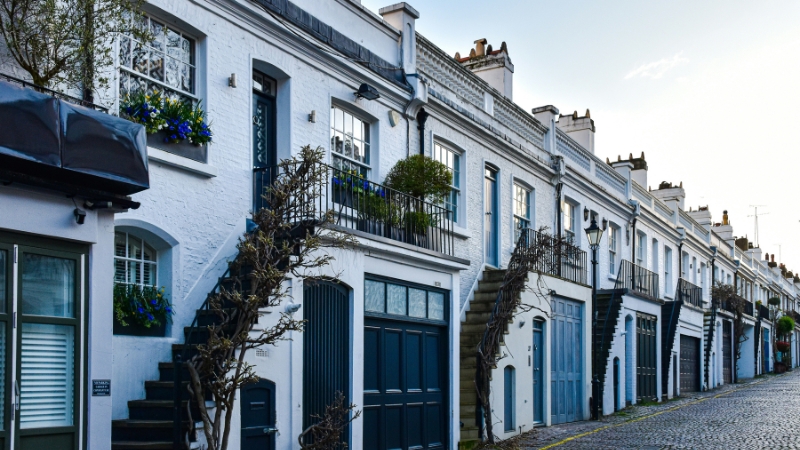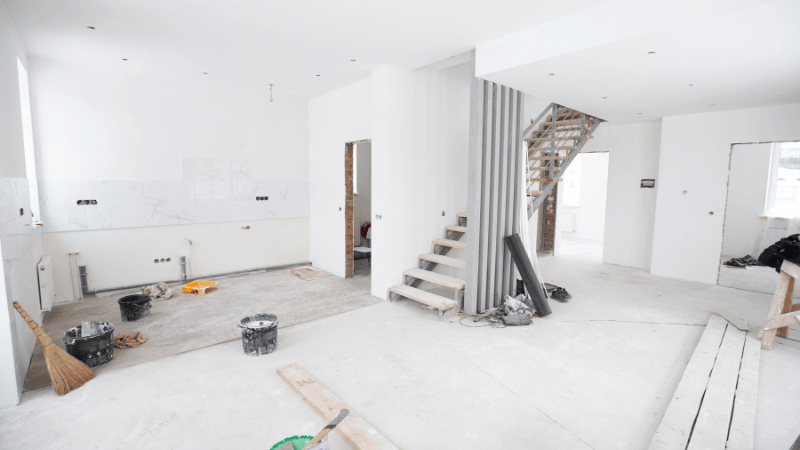Categories
How to Get a Business Mortgage

Mortgages for businesses are extremely powerful funding tools that can propel your business forward in many ways. Owning your own property is a strong investment that can also keep costs down, improve business cash flow, and bring in an income.
Commercial Mortgages for Businesses - A Breakdown
There are several different types of mortgage applicable for business use, and these can be separated into 6 main types:

Commercial Mortgages to Buy Property for Business Use
The most obvious reason to get a business mortgage is to purchase a property or land for use in the business itself. This may include:
- Buying office space for administrative staff
- Obtaining warehouses for storing stock
- Gaining industrial space, such as a factory
- Purchasing land for farming
Of course, owning a property for the business comes with additional expenses, from maintenance to insurance, but the net financial benefits are usually in favour of owning rather than renting property.

Business Mortgages for Investment
As the business grows, it can expand its asset portfolio and gain an income through purchasing property for investment. This may be for:
- Commercial leasing
- Becoming a residential landlord
- Speculative investment
The income provided by efficiently renting out the property will offset the mortgage costs as well as any associated management and maintenance expenses, ensuring the increase in the property value provides a strong long-term investment while savvy property management will also offer additional profit.

Portfolio Mortgages for Landlords
If the business is developed as a property management or landlord business, then a portfolio mortgage is ideal. Leveraging the equity in one or more properties in order to buy more and expand the property portfolio, a portfolio mortgage brings multiple mortgages into one simplified structure, with improved administration and lower rates.
Portfolio mortgages are ideal for those businesses with three or more rental properties.

Business Mortgages for Construction
Construction projects can utilise business mortgages to provide the capital needed to undertake the full project, from the purchase of land through to the development and fitting of the buildings.
At scale, the real estate funding marketplace is complex. When looking into obtaining funding for constructing new property, it is beneficial to consider the services of real estate debt advisory. This specialist service combines multiple mortgages and other finance products to provide the large-scale funding essential for construction purposes.

Mixed-Use Mortgages for Combined Business and Residential Use
Commercial mortgages are strictly for the purchase of property that is to be used for business purposes and cannot be used to buy residential property. This means that some buildings, despite being primarily for business use, cannot be purchased with a single commercial mortgage.
Similarly, a residential mortgage cannot be used to buy a building for business use. This can lead to some complicated situations where neither a commercial nor a residential mortgage is fit for purpose.
One example of this is a pub. As many pubs have both a business area and a residential portion, they cannot be bought with either commercial or residential mortgages - the buyer would need a residential mortgage to purchase the accommodation floors, and a commercial mortgage for the business of the pub itself.

Commercial Mortgages as Asset-Based Finance
Businesses often need capital for expansion purposes, and having a significant amount of equity tied up in the properties owned by the business can feel frustrating.
Thankfully, a wide range of commercial mortgage products exist under the umbrella of asset-based finance, enabling businesses to leverage property-based equity to fund additional projects and expenses.
These can either be shorter to mid-term loans that use the building as collateral, ensuring lower rates and superior terms to unsecured business loan equivalents; or they can take the form of full second charge mortgages, providing significant capital of up to 85% LTV to fund business expansion.
Preparing for a Business Mortgage Application
Getting a business mortgage is easy to do with the right preparation. Here are the main 4 steps:

The Early Stages
Ensuring Creditworthiness, Capital, and Affordability
The first step in obtaining a business mortgage is to make sure the business is in the right financial position to afford the mortgage and its repayments. This is in three areas: creditworthiness, capital, and affordability.
Creditworthiness
Creditworthiness is based on your business's recent financial history, or your business credit report. Having a good business credit report is essential for getting a mortgage, especially if you don’t want to be paying too much in interest rates.
While commercial mortgages for bad credit exist and are an excellent product for those businesses struggling with creditworthiness, it is advantageous to spend the time leading to a mortgage application to concentrate on this aspect of the application and to do what you can to improve your credit score.
There are several things that will affect your credit score, many of which can be solved with a little time and effort.
Sometimes, ‘fixing’ your credit score is merely giving it the time to become more distance history, rather than an indication of your current position.
The following are all key things to look at to improve your business credit rating:
- Major issues such as CCJs - There is nothing here that can be done but to give it time. If possible, wait a full year following any CCJs before attempting to get a business mortgage.
- Missed direct debits and other payments - If you have missed direct debits, for example, to utility providers or asset finance, then this will impact your credit score. Make sure you get up to date with these payments and if possible, wait three months since the last missed direct debit to prove your current creditworthiness.
- Maximising credit limits - Pushing your credit to the edge with credit cards, overdrafts, and other revolving credit facilities will greatly impact your business credit rating. Pay these down so that they are at a maximum of 60% of capacity to improve your chance of a successful commercial mortgage application.
- Overuse of credit - It is good to have a strong relationship with finance providers as this proves creditworthiness by building a history, but overuse of credit, especially in unnecessary areas can negatively impact your score. If you have a lot of open credit, cut down where possible. Plus, make sure any ongoing credit accounts are needed and used, and cancel any that have gone dormant.
- Business registration - Check that your business records are all up-to-date, with the proper address and accounting information. Any discrepancies or incorrect information here will negatively impact your credit score.
Here are some more top tips for improving your business credit score.
Capital
A business mortgage will never provide 100% of the funding you need to purchase property and you will need to have the capital to invest in the building yourself.
Most commercial mortgage loan-to-value (LTV) rests between 60% and 75%, meaning you will need to have the capital available to fund the remaining 25% to 40% of the property price.
Just as you would save for a residential mortgage, the business has to build up its finances to a suitable level for a business mortgage.

Affordability
Affordability stress tests are a measure of your debt service coverage ratio (DSCR). This is an assessment of your income against your debt repayment obligations.
Mortgage lenders want to know that the business will be able to comfortably manage each repayment, so will expect the finances to be able to meet this new obligation with cash flow to spare.
Look at your other debt obligations and consider paying off what you can, or potentially refinancing to lower the monthly debt burden and improve your DSCR.
The Business Plan and Forecast
Another key factor for a successful business mortgage application is your business plan.
No doubt, you have a business plan that was developed during the startup phase of your business, but how often have you revisited it?
Your business plan should include the complete financial forecast for the next three-to-five years, plus a looser plan for the following period. This financial information will help the lender understand the risk involved with your mortgage application and help with their affordability tests and overall assessment.
Business Documentation
It is a good idea to get all your business documentation in order before your mortgage application. You will need to ensure all official documentation is up to date, as well as providing the personal identity documents for the directors.
In addition, you will need the most recent company accounts and bank statements. Your accountant will be able to present the relevant documentation in an appropriate way.


Finding the Perfect Property
Shopping around for the property you are looking for is far outside the scope of this article, but it is important to understand that there may be limitations on the mortgages based on the property. Consider the following:
Property Type
As a mortgage is an asset-based loan linked to a property for collateral, the value of that property and the ease of its sale are key factors in any mortgage application decision.
Should your business fail to keep up with its obligations, the property will be repossessed and sold on to cover the debt and any additional costs; for this reason, lenders will not provide mortgages on extremely niche properties that require a specialist market and significant administrative time to sell on.
Some examples of properties that will typically be rejected for a business mortgage include:
- Properties of unusual construction type
- Properties outside of the UK
- Mobile properties (such as houseboats or mobile homes)
- Properties in undesirable locations
- Properties in a state of significant disrepair
While the idea of running your business from a floating platform deep in the wilds may appeal to you, and you may have found the perfect ‘fixer upper’ from the 1970s and is just perfect(!), lenders may not share your enthusiasm - and certainly not enough to provide the mortgage for its purchase.

Planning Permission and Other Regulations
You must make sure the property is legally fit for purpose. This means checking the planning regulations and use-class restrictions to make sure it can be used for the type of business use you intend.
Class B, for example, covers industrial and storage units; class C is used for hotels and holiday lets; offices, shops and restaurants fall in class E; while museums and galleries are part of the educational subset of class F.
Ensure that your property is suitable for your business use before moving to a mortgage application.
Property Value and Condition
There is no guarantee your business mortgage provider will agree to the proposed sale price by the vendor.
Commercial properties can vary in price considerably, with location a key factor to their value. Make sure you are realistic about the property value, its condition, and ultimately its likelihood to meet a mortgage lender’s expectation.

Exploring the Mortgage Market
There are many mortgage lenders in the UK, with a range of products to fit every niche. Some of them are extremely specialised, dealing with a specific industry or type of mortgage, while others are broader and offer a wider range of products but have less specialised knowledge.
There is no requirement for you to use a professional mortgage broker to find your mortgage, just as there’s no requirement to use a professional contractor to fix your roof, a professional marketing company for your advertising, or even a professional doctor to diagnose your illnesses - but in every case, it helps. Our service means you will save your time, better-spent running your business, and ultimately, you’ll get a better deal. Not only that, but we can help explain the finer nuances of the mortgage contract to ensure you’re not caught out later with some of the small print.
Whether you choose our professional service or go it alone, however, comparing the mortgage offers available on the market and checking the terms and conditions of them is vital to both saving your business money and ensuring a stress-free mortgage experience.


Making the Mortgage Application
With all your metaphorical ducks in a row, the final stage of mortgage application is relatively simple. Nonetheless, there are some forms to fill out and discussions to be had.
Here again, using a professional mortgage broker to simplify the process and explain the significance of each part of the mortgage contract will help make sure the application is done properly - making a ‘yes’ far more likely.
Speak to the business mortgage team at Clifton Private Finance to see how we can help you secure a successful application.
Our Recent Case Studies
Business Mortgage Advice with Clifton Private Finance
No matter what stage of your business mortgage journey you are at, we at Clifton Private Finance are here to help.
As established professionals with dedicated relationships with all the major banks and specialist mortgage lenders in the UK, we can ensure that you get the business mortgage you need to obtain your desired property.
Our services include:
- Comprehensive business mortgage advice
- Detailed analysis of mortgage options to determine the best fit for your business
- Help with bad credit or low affordability
- Full real estate debt advisory service for larger development and construction projects
- Efficient portfolio mortgages for landlords
- Dedicated mixed-use mortgage specialists for pubs, shops with linked homes, combined art studios and flats, and other complex needs
- Step-by-step business mortgage application support
- Asset-based funding options for business expansion
- Cash flow solutions to meet mortgage obligations
- Bridging finance for property auction purchases
Our team is here to guide you through every step of the process, helping you make informed decisions that align with your business goals. To see what we can do for you, give us a call at 0203 900 4322.












